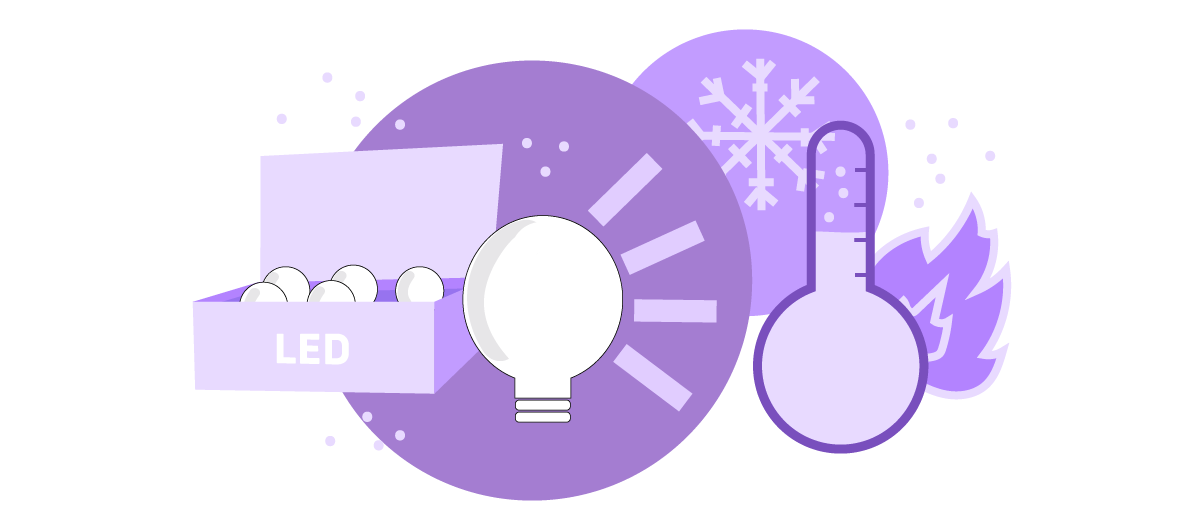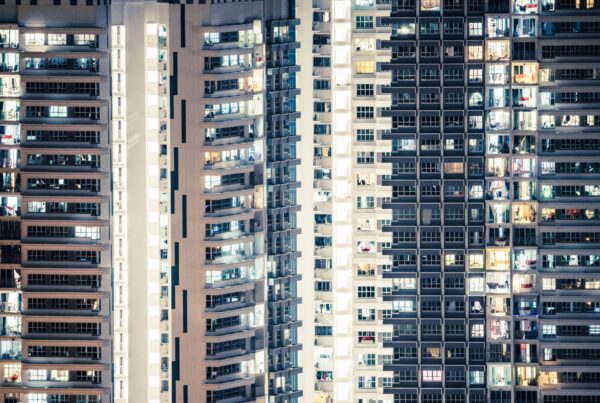As we swing into what already feels like a swelteringly hot summer, we’re revisiting some important energy saving tips to help property management teams keep cool while also keeping energy usage and utility bills in check.
Apartment Energy Consumption Facts You Should Know
Did you know that the average 1,000 sqft apartment uses close to 900 kWh of energy every single month? Or how about the fact that heating and cooling is responsible for as much as 70% of total apartment energy consumption? Obviously, usage is going to vary depending on things like property type, location, and number of units, but no apartment community is exempt from the impact of our changing climate and its effect on energy usage.
That said, there are things that we can do as property operators and management teams to help mitigate the effect of blisteringly hot days and help conserve energy all year round. Why not make things a little easier on the wallet and the environment, right?
Top Energy Saving Tips for Apartment Property Managers
So here are a couple of energy saving tips we recommend to property managers everywhere. If you haven’t checked any of these boxes lately, now’s a great time to do it. Some of these recommendations are simple to implement and offer a lifetime of benefits and savings.
Time to Change Those Light Bulbs
If you’re not using LED light bulbs yet, consider making the transition now. LED bulbs are the most energy efficient lighting option available today by a wide margin. We’re talking lifespans and efficiency 3x greater than fluorescent bulbs and 30x greater than incandescents. In fact, a typical LED bulb could last 15 years if you ran it 24/7. How’s that for longevity?
Natural Light
Now just because we can use incredibly energy-efficient light bulbs 24/7 doesn’t mean we have to. Having a well-lit apartment can be accomplished without having to keep the lights on all day. Encourage residents to be mindful of energy use – especially during peak times – by enjoying natural light. You may even consider sending out informative emails and flyers about the benefits of welcoming natural light into your home and helping residents save on their electric bills.
Energy-Efficient Heating and Cooling
Installing energy-efficient heating and cooling systems is incredibly important, and it doesn’t have to be a cost-prohibitive or overwhelming endeavor. These days, it’s easy to find Energystar ratings for heating and cooling appliances, and average efficiency ratings will continue to improve over time. Plus, considering how much energy consumption cooling and heating systems are responsible for, it’s a very worthy investment to make that’s increasingly easier to justify. Much like lightbulbs, energy-efficient heating and cooling systems can provide tenfold savings over their lifetimes.
And if you’re thinking to yourself “my community already has energy-efficient appliances”, that’s not all there is to energy-efficiency in apartment communities. Consider things like dual pane windows, insulation, or a smart apartment system like Quext IoT that is fully integrated with your property management software to help further improve energy-efficiency (not to mention operational efficiency).
Smart Apartment Technology
As previously mentioned, one of the best ways to improve energy-efficiency is to have smart apartment technologies that help you use these systems effectively. An effective Energy Management System can help you and your residents control, monitor, and optimize energy consumption. For example, Quext IoT’s hub-embedded smart thermostat can follow heating or cooling schedules, and even use an internal sensor to sustain a specific room temperature – all while reporting this information to the Quext IoT mobile app where it can be monitored remotely. It’s the pinnacle of efficiency for apartment owners.
How Does Smart Home Technology for Apartments Save Energy?
Let’s take a closer look at how smart apartment technologies can help save energy.
Auto-Adjusts Energy According to Actual Needs
One of the greatest benefits of instituting an IoT system, or a smart thermostat, is the machine-learning capability of making adjustments based on usage patterns. Many smart thermostats can not only adjust based on these patterns, but will also allow you to create heating and cooling schedules, use location services to recognize when you’re home or away, or rely on sensors to prioritize conditioning or heating specific rooms or areas of the home.
Provides Reliable Energy Data to Help You Take Action
In addition to these smart capabilities, smart apartment technologies can also provide reliable energy data to help you manage, monitor, and optimize usage. Knowledge is power, and having energy data across an entire property can help management teams identify trends, forecast usage, and even look for additional savings opportunities (i.e. cooling vacant units during tours, or during peak hours in common areas).
Ways to Inform Residents of Energy Saving Tips and Why They Are Important
Instituting all of these energy savings tips is only half the battle – the other half is using them! Here are a few ways you could inform residents about energy saving tips and stress the importance of them.
Weekly or Monthly Newsletter
Consider a regular resident newsletter (or e-newsletter). A great way to keep residents informed and foster stronger relationships is to establish regular communications with them.
Flyers for Best Practices
Additionally, consider distributing flyers to residents with best practices to help conserve energy and save money. Or posting flyers with reminders to turn off lights or equipment before leaving common areas like fitness centers.
Hold Special Webinars for Residents
You might also evaluate the benefit of hosting a special meeting or webinar for residents to provide helpful tips and reminders that encourage greater mindfulness of energy conservation. This could be particularly helpful for larger or more amenity-rich communities to help drive greater energy-efficiency initiatives forward.
Share Case Studies of How ‘Smart’ Residents Reduce Costs
Lastly, if you have case studies or historical data for your property (or even non-community-specific advice), share it! As operators ourselves, we don’t like receiving surprise bills with outrageous usage data any more than our residents do. Sharing examples of how “smart” residents can reduce energy costs is a great way of showing residents that you care and want to help them live happier, healthier, and save on their utility bills. It’s a win-win!



